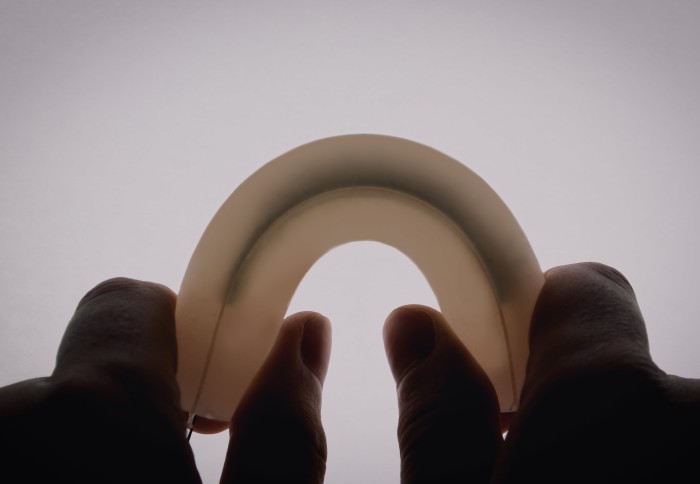Arm-strengthening device to be brought to the clinic with £800k grant

Imperial and GripAble have been awarded an £800k grant to help children with cerebral palsy in the clinic using a new arm-strengthening device.
GripAble, a company formed by researchers at Imperial College London and clinicians at Imperial College Healthcare NHS Trust, is a digital assessment and training platform supporting individuals undergoing rehabilitation for both neurological and musculoskeletal conditions. The company and Dr Firat Güder's team at Imperial were awarded the grant by the Biomedical Catalyst (BMC) Feasibility and Primer Awards 2021 competition, run by Innovate UK.
My team and I are extremely excited to work with GripAble and other partners on this project, which will be a great learning opportunity for all those involved. Dr Firat Guder Department of Bioengineering
The funding will help to bring an arm-strengthening device, named SqueezAble, to the clinic. The device combines novel soft-sensing technology and interactive game to revolutionise upper-limb therapy for children with cerebral palsy.
In the UK, there are an estimated 187,000 children living with an arm disability, and 85 million worldwide. Without regular occupational therapy for upper limb and hand strength, dexterity and movement range, a child's condition is likely to deteriorate and impact their ability to live in functional independence in adulthood. Many arm disabilities are linked to neurological disorders such as cerebral palsy, which affects coordination, precision, and timing of movements.
The project team will work with children with cerebral palsy to develop SqueezAble, having now commercialised its first portable therapeutic hand-grip devices, the GripAble Pro and the GripAble Home, for people with a range of musculoskeletal and neurological conditions.
The project will incorporate user-centred design processes to develop and test SqueezAble with our target user group. Dr Mike Mace Chief Technology Officer and Co-Founder, GripAble
Dr Güder, whose group at the Department of Bioengineering developed the underlying patent-pending soft-sensor technology, said: “This project will allow us to build a medical device and an entirely new concept to address a large gap in current practice, which we hope will be especially valuable for the rehabilitation of paediatric patients.
“My team and I are extremely excited to work with GripAble and other partners on this project, which will be a great learning opportunity for all those involved.”
Together with an award-winning team of occupational therapists, clinical specialists, and medical device engineers, the project is aiming to advance the current prototypes toward clinical translation.
Dr Mike Mace, chief technology officer and co-founder of GripAble, said: “Children living with an arm disability must learn to independently complete bimanual activities of daily living, requiring them to use both hands simultaneously to complete everyday tasks like eating, writing, and washing.
"The project will incorporate user-centred design processes to develop and test SqueezAble with our target user group. As well as developing the new SqueezAble technology, over the next two years, we plan to create new bimanual games for training functional movement on GripAble's software platform extending our current unimanual games.”
This story was adapted from a press release by GripAble.
Article supporters
Article text (excluding photos or graphics) © Imperial College London.
Photos and graphics subject to third party copyright used with permission or © Imperial College London.
Reporter
Caroline Brogan
Communications Division